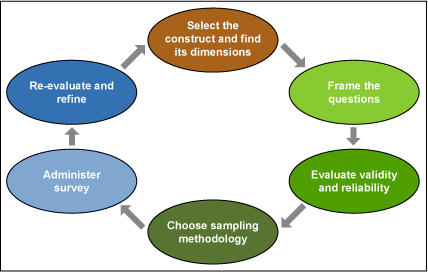The module on research methods is the start of your PhD coursework.
The module gives an overview of the entire research process, from selecting and formulating your topic, critically reviewing relevant literature on your topic, and designing your methodology, to analyzing your data and writing-up and presenting your findings.
The next modules will zoom in on quantitative methods (including survey design) and qualitative techniques. in addition, there is a separate module on tools to analyze your data.
After that, you may feel the need to dig deeper into specific tools and techniques. We offer a vast range of specialized modules, to guide you. You will get access to these specialized modules if your supervisors thinks that such modules are needed for completing your research. In principle, you can top-up the mandatory four modules to a complete Master of Research, by studying for additional topics.
But let's take it step-by-step, and start with the fundamentals: research methods for business students.
Good Luck!!

In the module we will introduce you to on basic business statistics.
For some who are familiar with basic statistics, the module can be seen as a refresher course.
For those of you who are not familiar with statistics, many of the concepts may be new, and at times difficult. If you are new to statistics, then we recommend buying the textbook that accompanies this module.
For statistics, especially for quantitative studies at masters or doctoral level, and when using large data sets, you have to be familiar statistical software. There are great software packages in the market, like STATA and SAS. These commercial packages are quite expensive. Many researchers nowadays make use of open-source software like R, and this module is no exception. The disadvantage of R is that the learning curve, especially if your are new to statistics, is quite steep. However, we will try to convince you that it is not as hard as it looks. Many of the examples in our manuals, can be easily replicated. And the Internet offers a lot of great websites on which you find solutions for the tasks at hand.

In this module, we will guide you in designing and conducting surveys.
Important aspects of survey design are questionnaire development, pretesting, sampling and data collection.
Although the focus in survey design is on structured questionnaires with prespecified questions, many of the principles are equally valid in case of qualitative research.

This module will make use of the textbook by Blair, Czaja & Blair. This textbook is very accessible, and students will find it a valuable source for planning and conducting their (survey) research.
Blair, J., Czaja, R.F. & Blair, E. (2014). Survey Design: A Guide to Decisions and Procedures. 3rd Edition. Sage